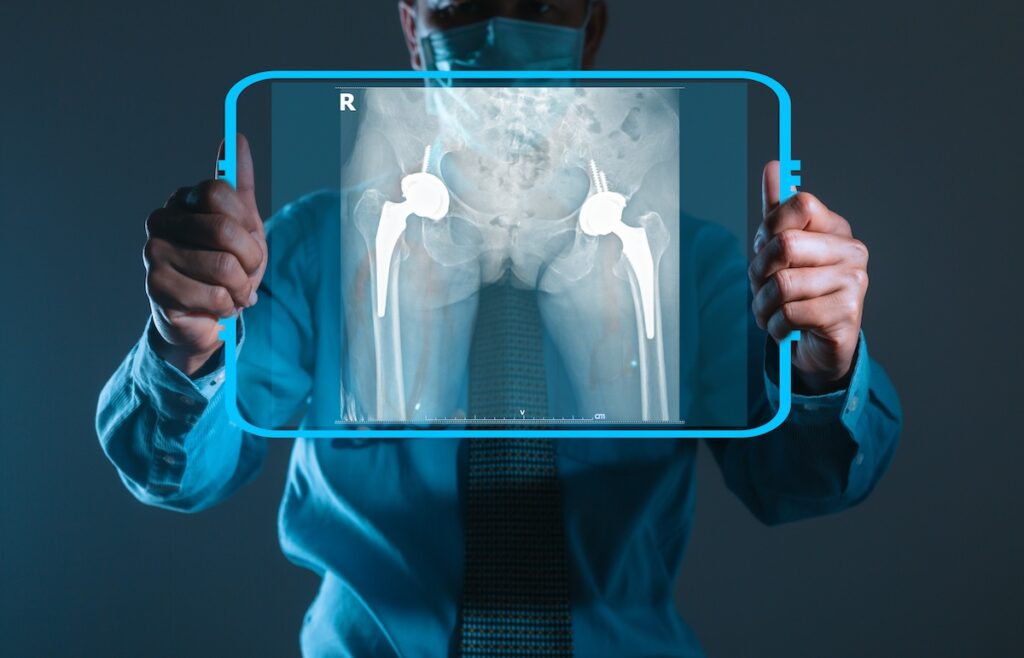Artificial intelligence can help to significantly reduce waiting times for hip replacement surgery according to health researchers in Aberdeen.
Aberdeen University researchers carried out a study that showed AI could ‘rapidly and accurately’ predict which patients would be most suitable for joint replacement surgery.
If applied in a clinical context, the results proved that AI has the potential to cut waiting lists and help ensure that the right person is seen by the right clinician at the right time.
Dr Luke Farrow, clinical research fellow, from the University of Aberdeen, who led the study said: “We identified that the radiologist’s summary of x-ray findings can be successfully used to help predict which patients referred for consideration of hip replacement will go on to have surgery.
“This is the first comprehensive study to confirm the potential of Artificial Intelligence in this field.”
The results of the study were published in the Bone and Joint medical journal and have the potential to “transform” joint replacement surgery – where waiting lists are currently at an all-time high.
Dr Farrow said: “Using this AI tool in clinical practice would allow for rapid automated review of many patients which would likely significantly improve efficiency and reduce associated costs – this could change the lives of thousands of patients who have been waiting for years to reach the top of surgical lists.”
Dr Farrow and the team found that the AI still needs to be trained according to the specific characteristics of the healthcare setting it is to be used in.
The study showed that the effectiveness of the developed AI algorithm deteriorated significantly when faced with radiology reports from a different healthcare setting, such as a different NHS board area, indicating a need for further training on a wider, more diverse population.
52-year-old Steven Lewis from Aberdeenshire, began to notice pain in his hip while following his passion for trail running. What started as a reduction in mobility and ‘niggling pain’, developed into a continual limp, chronic pain and discomfort. Steven went from running the hills of Aberdeenshire to being unable to even sit or sleep without pain in a period of a few months.
Unable to register with a GP since moving from England more than a year ago, Steven was conscious that he would have a long wait to get his hip replaced.
He said: “I moved to Scotland more than a year ago and have yet to find a GP that will take me. I have seen the reports of people having to wait years for hip replacements and I knew I couldn’t wait that long.
“The pain was having a huge impact on my life – I missed running of course, but more than that – I couldn’t get any relief from it – even when I was trying to sleep.”
Steven is able to access private healthcare through his employer and is now considering hip replacement surgery from a private healthcare provider.
Using AI to streamline the process can only be a good thing in Steven’s opinion: “Data enabled decision making to support humans is now at the forefront of technology and has huge potential across many industries.
“I have heard horror stories of people waiting years for hip replacements so if it can be used to help patients receive a swifter diagnosis and remedial surgery where required it can only be seen as a positive.”
It is hoped that with ongoing further development of the technology it will be available within the NHS in the next few years.
